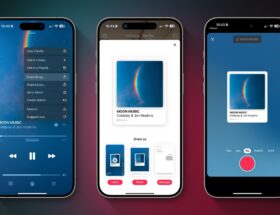
Apple Intelligence launches later this month, bringing the first wave of AI features to your iPhone, iPad, and Mac. But as with all AI technology, privacy is a key consideration. How does Apple Intelligence handle user privacy? Here's what you need to know.
Apple's approach to privacy: On-device first, private cloud computing second
For years, Apple has been a leader in on-device processing for all kinds of powerful features. The benefits of device-first prioritization are twofold:
- Processes run faster when they don't rely on an external server
- User data can be securely localized for maximum privacy
It's no surprise then that Apple Intelligence will rely heavily on a device-first approach.
Apple has built its AI capabilities so that most of the time, everything will run entirely on the device. No data is sent to the cloud, it stays with you on your physical device.
However, there will be times when Apple Intelligence will need to connect to external servers for additional processing.
For these situations, Apple created Private Cloud Compute with the goal of providing the same security off-device as on-device.
The Promises of Private Cloud Compute
On the day Apple Intelligence was first announced, Apple published a detailed research paper on the security of Private Cloud Compute.
From the introduction to that paper:
We believe PCC is the most advanced security architecture ever deployed for large-scale cloud AI computing.
There are five core requirements at the core of Private Cloud Compute:
- Stateless computing, meaning that data cannot be used for anything other than the purpose for which it was submitted
- Enforceable guarantees, so it is designed so that its promises are “fully technically enforceable”
- No privileged access at runtime, meaning that Apple has no mechanism for bypassing security for itself
- Targetlessness, so no user can be individually targeted by an attacker
- Audible transparency, allowing third-party security researchers to analyze and verify Apple’s system claims.
The full paper has considerably more detail.
Some AI tasks simply can’t be performed efficiently using on-device models. The flexibility to use larger cloud models and more abundant Apple Silicon opens up new possibilities for Apple Intelligence. This could be especially valuable as new features are added in the future.
Trying to make Private Cloud Compute as secure as on-device processing is a lofty goal. Time will tell if Apple succeeds, but the level of transparency and built-in auditability are great signs.
Wildcard: ChatGPT Integration and More
Later this year in iOS 18.2, Apple Intelligence will integrate ChatGPT intelligence into two key places: Siri and writing tools.
This means users will have the option to use ChatGPT's extensive knowledge, but only when needed.
This ChatGPT integration will ask you for permission before it is used. So if you make a request to Siri that Siri can't answer, it may recommend using ChatGPT instead. You'll then have the option to respond yes or no.
Once you authorize ChatGPT, your data will be sent to OpenAI's servers and will be protected by their own privacy policy, not Apple's.
Apple has said it may bring on additional partners in the future, such as Google Gemini. With all of these third-party integrations, Apple Intelligence will ask you first before sharing your data, but if you give permission, the privacy promises of other Apple Intelligence features won’t apply to those requests.
Apple Intelligence Privacy: A Summary
Privacy has been a core part of Apple products for years. Almost every year, new software and hardware features are introduced to better protect user privacy. Apple Intelligence seems set to continue that trend.
What are your thoughts on Apple Intelligence and privacy? Let us know in the comments.










